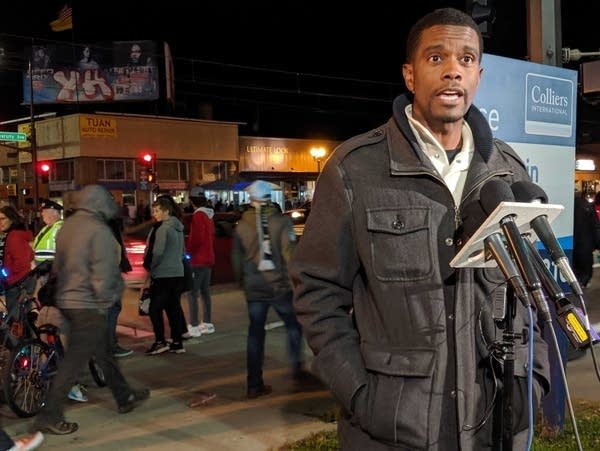Mayor Carter: Response to violence must include all of St. Paul's city government

St. Paul Mayor Melvin Carter vowed to renew efforts to fight gun violence after a shooting wounded two people near Allianz Field Sunday night. Carter spoke near the scene.
Tim Nelson | MPR News
Go Deeper.
Create an account or log in to save stories.
Like this?
Thanks for liking this story! We have added it to a list of your favorite stories.


